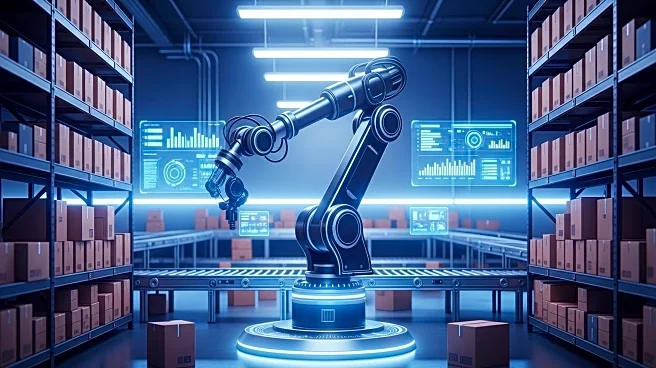What's Happening?
Manufacturers are increasingly turning to supply chain localisation as a strategy to mitigate risks associated with geopolitical tensions, trade tariffs, and labor shortages. Industrial AI is emerging as a critical tool in this transition, enabling manufacturers to automate emissions calculations, enhance sustainability, and improve scenario planning. By leveraging AI, manufacturers can optimize product design, remanufacturing processes, and ESG compliance, ultimately reducing costs and improving supply chain resilience. The shift from global to local supply chains is driven by the need for greater flexibility, sustainability, and responsiveness to disruptions.
Why It's Important?
Supply chain localisation offers manufacturers the opportunity to reduce transportation emissions, improve supplier oversight, and lower costs associated with tariffs and currency fluctuations. Industrial AI facilitates proactive decision-making, allowing manufacturers to simulate disruptions and re-plan in real-time. This capability is crucial in a world where supply chain disruptions are increasingly common. By embracing localisation and AI-driven tools, manufacturers can enhance their resilience, meet regulatory targets, and achieve significant cost savings, positioning themselves for long-term success in a rapidly changing global landscape.
Beyond the Headlines
The integration of Industrial AI into supply chain localisation not only addresses immediate challenges but also sets the stage for long-term sustainability and ethical practices. As manufacturers adopt circular models and act on emissions data, they contribute to environmental conservation while enhancing their operational efficiency. The shift towards localisation and AI-driven planning represents a fundamental change in supply chain management, where resilience and responsibility are prioritized alongside traditional cost optimization.










